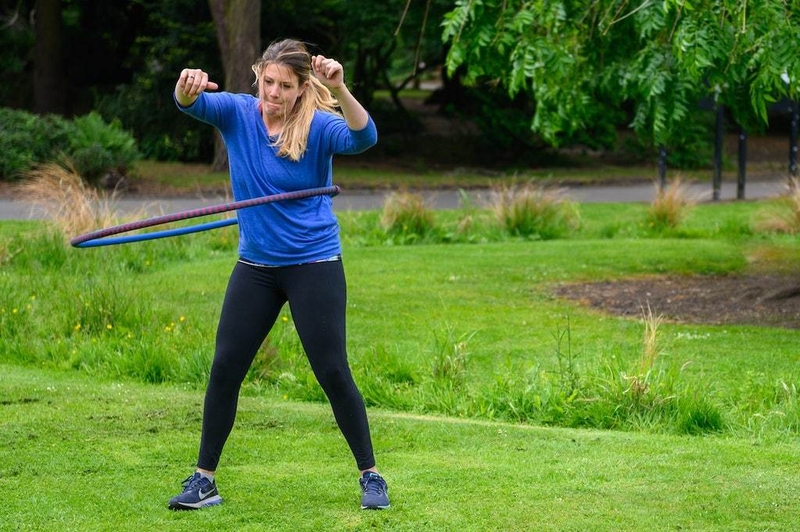Support, services and top tips for keeping anxiety and depression at bay
This article has been updated from April, when we wrote ‘COVID-19 has dramatically transformed life as we know it.’ Unfortunately, over six months later, not much has changed in that respect; with England now in the grip of a second lockdown, albeit slightly less restrictive than the first, the pandemic continues to wreak havoc on lives in Blighty and beyond. In short, it’s a tough time - which is why we’re republishing this guide in case anyone needs it.
Below we’ve outlined the advice given by Mind, the UK’s leading mental health charity, for managing your mood during the outbreak - and added some handy pointers, from local initiatives to relevant roundups.

Much of the advice below also applies to physical health which, although current restrictions may make this more challenging, is just as vital to maintain: according to the NHS, exercise can reduce your risk of major illnesses - such as heart disease, stroke, type 2 diabetes and cancer - by up to 50% and lower your risk of early death by up to 30%.
As Mind states, maintaining a regular routine can be helpful for providing structure; particularly during a time when many normal structures temporarily don’t apply. It may be helpful to incorporate the below into a daily routine you can follow.
Eat well and stay hydrated
When you’re feeling bored, anxious or down, it can be tempting to indulge in comfort foods or unhealthy snacks - try not to. There’s a big difference between eating well (with the occasional treat) and slipping into endless snacking. Staying healthy and hydrated is not only important physically, it also has a massive impact on your mood too.
Top tip: From Manchester businesses offering deliveries and takeaways to the latest food and drink news, our Eating Out and Drink sections have inspiration aplenty for keeping your shelves stocked *and* local companies supported. Also check out Manchester’s new wellbeing café Feel Good Club for a serving of positivity alongside your order
Get active outdoors
Exercise, fresh air and nature are some of the best tonics for physical and mental wellbeing. Admittedly vitamin D is in shorter supply this time of year but even a short stroll can make a huge difference; and that includes around the block if surrounding green space is scarce. With travel for exercise permitted during lockdown #2 (within reasonable distance), it’s also a great opportunity to get exploring your local area.
Top tip: The new Nature Greater Manchester website has lots of inspiration for exploring natural spaces throughout the region. MCRactive and Greater Manchester Moving, meanwhile, have ideas aplenty for exercising both outdoors and in
Optimise your home time
From illness to isolating, there are reasons why getting active and into the great outdoors aren't always feasible. Fortunately there are ways you make both work at home. Cleaning, dancing to music, going up and down the stairs, online workouts…these are just some ideas for keeping fit indoors. And tools like skipping ropes and hula hoops show you don’t need an at-home gym to get in some cardio. See the aforementioned MCRactive and Greater Manchester Moving for more handy hints.
For bringing in the outdoors, even just opening the window can work wonders; as can listening to natural sound recordings and getting out in the garden if you have one. And with natural light in increasingly short supply, some people find SAD lamps can help fend off the winter blues.

Top tip: Have a dog? See our advice on keeping you and your furry friend active too; this was published during the first lockdown, when walks were restricted to once a week, and contains a myriad of ways to keep your pup entertained at home
Balance your day
A sense of purpose is vital for good mental health - something that may suffer if your usual tasks have been displaced - but there are opportunities aplenty to stay productive at home, whether having a clear out or tidying your possessions a la Marie Kondo. Mind also suggests a digital MOT, from deleting unused apps to sorting emails and upgrading software, plus contacting people you’ve been meaning to catch up with.
Finding moments to relax and be creative is also important - from arts and crafts to yoga, music to meditation - as is keeping your mind stimulated. Books, magazines, articles, podcasts, films, puzzles…all are great ways to keep yourself engaged.

Top tip: Check out our monthly listings for events to keep you and your family occupied both online and outdoors. Other top listicles include Manchester reads, Manchester podcasts and video games
More useful advice
Take care of your immediate environment
For some, a clean and tidy home environment can help with spending more time indoors. For households with several people, it might help to decide who will use different spaces and how.
Find ways to work or study at home
Mind has put together some handy hints for those working from home, as well as caring for children and young people.
Connect with people
From video chats to phoning and messaging, staying connected is still possible thanks to technology. Mind also has an online community, Side by Side, for those without a strong support network.
Maintain a regular routine
As mentioned, having a routine can help you stay focused and productive; from waking up and going to bed at the same time each day to scheduling in activities and household chores. Try to follow your ordinary routine as much as possible.
Take care with news and information
It’s important to connected with current events (via reputable sources) but, if the news is making you feel anxious or down, consider limiting what you look at or watch. This also applies to social media, on which following positive accounts like Action for Happiness and School of Life can also help.
For Mind’s full advice - including for those with support needs (medication/treatment/care) and those struggling with their mental health - visit mind.org.uk.
For mental health services in Greater Manchester, visit hub.gmhsc.org.uk.
The following pages list available COVID-19 support for each council:














